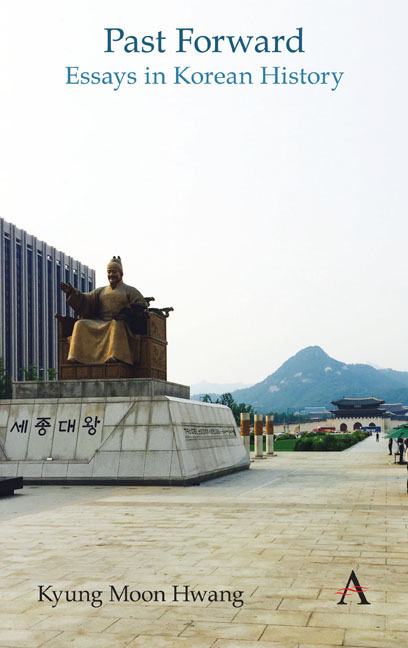Book contents
- Frontmatter
- Contents
- List of Figures
- Foreword
- Chronologies of Korean History
- Themes
- Acknowledgments
- Note on Romanization and Spelling
- Part I Circulating History
- Part II Durable Traditions
- Part III Ancient Remains
- Part IV Dynastic Depths
- Part V Modern Origins
- Part VI Challenges of Nationhood
- 30 Korea's Past in Light of Brexit
- 31 Openness and Exclusion
- 32 The North Korean View of History
- 33 Another Way to View National Division
- 34 The First National Assembly Elections
- 35 Who Started the Korean War?
- 36 Textbooks and Competing Nationalist Histories
- 37 The Complexities of Memorial Day
- 38 Adoption's Spotlight on Korean History
- 39 Questioning Monuments
- 40 Taking Ownership of the Past
- Part VII History Makers
- Part VIII External Presences
- Part IX Trials of Modernization
- Part X Gripped by the Past
- Index
33 - Another Way to View National Division
from Part VI - Challenges of Nationhood
- Frontmatter
- Contents
- List of Figures
- Foreword
- Chronologies of Korean History
- Themes
- Acknowledgments
- Note on Romanization and Spelling
- Part I Circulating History
- Part II Durable Traditions
- Part III Ancient Remains
- Part IV Dynastic Depths
- Part V Modern Origins
- Part VI Challenges of Nationhood
- 30 Korea's Past in Light of Brexit
- 31 Openness and Exclusion
- 32 The North Korean View of History
- 33 Another Way to View National Division
- 34 The First National Assembly Elections
- 35 Who Started the Korean War?
- 36 Textbooks and Competing Nationalist Histories
- 37 The Complexities of Memorial Day
- 38 Adoption's Spotlight on Korean History
- 39 Questioning Monuments
- 40 Taking Ownership of the Past
- Part VII History Makers
- Part VIII External Presences
- Part IX Trials of Modernization
- Part X Gripped by the Past
- Index
Summary
For more than a generation, surveys have shown a weakening resolve among younger South Koreans to achieve reunification. Understandably, societal leaders and elders have perceived this development as deeply alarming, even scandalous. The diagnoses have ranged from excessive materialism and individualism to a general apathy about social or political matters, including ignorance of Korea's history. But a closer examination of Korean history also suggests that the concept of national division itself might be problematic.
Most Koreans today, in both North and South, have come to internalize the idea that Koreans make up an inviolable, indeed homogeneous ethnic nation, bound foremost by shared ancestry and culture. Korean schoolchildren are still taught that the Korean nation is about 5,000 years old and began with the mythical progenitor, Dangun. Though fundamentalist Christians and others have objected, most Koreans have come to accept this story as a kind of harmless legend that strengthens national identity and speaks to the inherent unity of the Korean people. They tend to perceive the current political division, therefore, as not only improper but unnatural.
Like religious identity, then, national identity seems almost inescapable, even though no one is born with any particular national gene. National identity is a social construct, or more accurately, a historical construct, and it is worth considering that the construction of Korean national identity has usually served political or other particular interests, and that Korean nationhood is a complicated matter, if history is any guide.
Over the past decade or so, for example, South Koreans have been compelled to reassess the criteria of their nationhood if they are to deal properly with the realities of immigration. Ancestry or “blood” cannot be the basis of Korean national identity anymore, because that would exclude an increasing number of residents who are recent immigrants or their descendants. Actually, throughout the verifiable length of Korean history (which, while not close to 5,000 years, is still very long), waves of immigrants, voluntarily and often otherwise, have settled in the peninsula. Koreans have hardly been a homogeneous people.
What of the notion that Koreans are identifiable through their unique culture and values? In terms of religion, this certainly is not true.
- Type
- Chapter
- Information
- Past ForwardEssays in Korean History, pp. 95 - 97Publisher: Anthem PressPrint publication year: 2019



